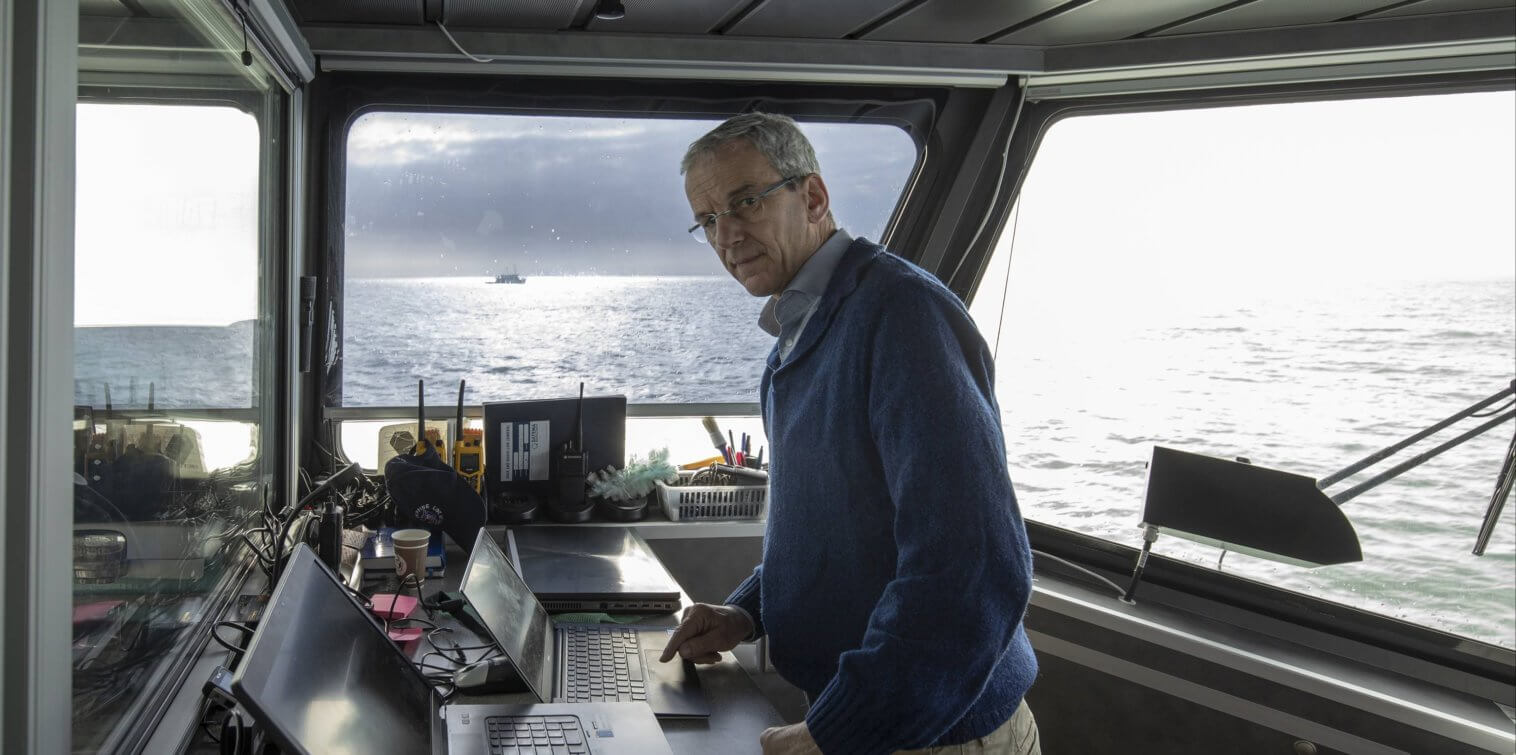Learn more about autonomous shipping in the maritime capital of Europe.
AI finds its way
There are many leading companies in the Rotterdam area which are already pioneering with AI. Including the Aquadrone, which cleans up plastic. The WasteShark collects plastic in shallow waters before the litter ends up in seas and oceans. The device is operated from the quay. The WasteShark was built on the RDM site. Another example where AI is effectively used is Kotug’s remote-controlled tugboat, the Rotortug. The ship sails safely and partly autonomously using this technology. Kotug uses its Rotterdam simulator to conduct further unmanned sailing tests. The real-time sensor technology allows for the captain to be visually, remotely supported with realising a safe execution. Unmanned shipping is now getting closer both from a commercial and technical perspective, combined with drone technology to connect the tow line.
The Dutch government recognises the importance of AI and allocated an amount of 276 million euros from the National Growth Fund to the development of AI in April this year. Krikke: “This fund is allowing the Netherlands to catch up with other regions where AI is concerned. However, we haven’t quite reached France’s and Germany’s level just yet.”
The Rotterdam Port Authority and the Municipality of Rotterdam have ambitious plans for applying AI in the maritime sector. They feel AI shouldn’t just lead to an improvement in efficiency in ship designs, production processes and logistics processes. Realising social goals are of vital importance. Such as reducing Co2 reduction and other harmful emissions and improving air quality in the City and the Port.
Adaptability
Krikke has identified two major challenges: “The habits in the sector and legislation and regulations won’t just allow for intelligent systems to take over human tasks. Also, the human factor can become quite challenging too. Current jobs will be different in the future.
Routine work will be done by computers, but even some of the decision-making will partly be taken off people’s hands by systems.” Young people won’t have any problems with these types of changes, but not everybody. It requires training and adaptability during a career.
Krikke is of the opinion that we’re now heading into the working group’s most important phase: ‘Setting up projects with companies in the sector, the knowledge institutes and the ports in order to make optimal use of the available technology.’
